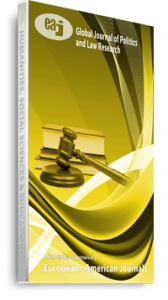This article examines the doctrine of adverse possession within the Albanian Civil Code, emphasizing its legal foundations, ethical implications, and socio-economic impact. Adverse possession rooted in the Roman usucapio offers a legal pathway for a possessor to claim ownership over immovable property after continuous, peaceful, and public occupation. While this doctrine reconciles the efficient use of land with respect for ownership rights, it raises pressing philosophical, legal, and moral questions, especially in post-socialist Albania, where property registration and land reform remain problematic. By comparing domestic norms with international jurisprudence and theories of property from Roman law to modern utilitarianism, the article presents a holistic view of adverse possession’s role in ensuring legal certainty, social justice, and economic development. The discussion draws on case law, doctrinal analysis, and economic data to argue for a balanced application of the doctrine that respects both the rights of absentee owners and the legitimate expectations of long-term possessors.
Keywords: Albania, Civil Code, Ownership, Social Justice, adverse possession, property law, usucapio

